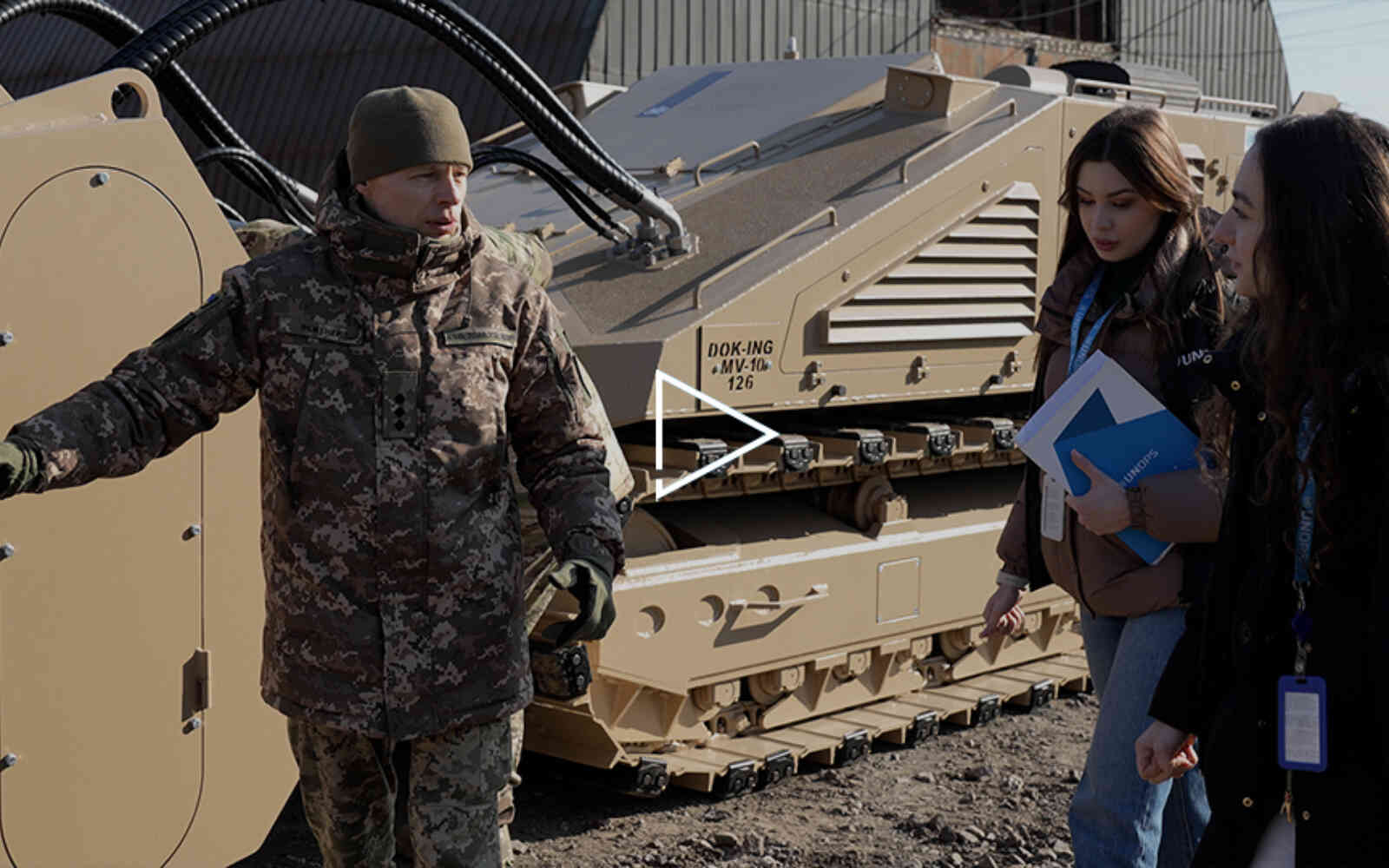The United Nations Office for Project Services (UNOPS)
Infrastructure for peacebuilding, a UNOPS report

The publication explores how infrastructure is key to supporting peacebuilding efforts and fostering inclusive, sustainable and resilient development in fragile and conflict-affected states.
“This report draws on over 25 years of UNOPS experience in infrastructure in fragile and conflict affected settings. It calls for infrastructure systems that focus on people’s needs, promote social cohesion and reduce inequalities, including gender inequality. So that we can all move towards a more peaceful, sustainable and resilient world,” said UNOPS Executive Director Grete Faremo.
Introducing the report, Assistant Secretary-General for Peacebuilding Support, Oscar Fernandez-Taranco, added: “This paper is a fundamental contribution towards understanding how infrastructure plays a role not only in reconstruction and economic development processes, but also in addressing the root causes of violence and instability and preventing conflict.”
UNOPS experts argue that infrastructure is a basic prerequisite for development and well-being. It has the potential to address some of the root causes of conflict. While addressing infrastructure needs in fragile and conflict-affected contexts can be particularly challenging, the report finds that the risk and cost of inaction are even higher.
Evidence based decision-making in addressing infrastructure needs and informing long-term sustainable development is central to building stable, inclusive societies with the aim of attaining long-lasting peace.
Based on comprehensive research, the report points out that peacebuilding is an ongoing process that begins long before conflict takes place. When implemented with wider reforms, infrastructure investments can support long-term peace and resilience by enabling access to basic services and has the potential to foster structural changes that reduce the risk of violence and promote sustainable development.
On the other hand, infrastructure can hinder peacebuilding if services are lacking or if infrastructure is unable to protect communities. Poorly planned, designed and implemented infrastructure can fuel tensions by reinforcing an inequitable environment. Given the ‘lock-in’ effect caused by the long lifespan of infrastructure, investments that fail to account for the complex interactions that infrastructure has with fragility, risk contributing to prolonged instability.
One issue, highlighted in the report, is that infrastructure projects often focus on delivering isolated physical assets, hoping this alone will improve access to public services.
“While short-term responses can address pressing needs, they often fail to carry out the appropriate planning and preparation that are crucial to successful infrastructure implementation, particularly in fragile and conflict-affected states,” said Mr. O’Regan.
“Likewise, they often fail to develop the capacity needed to manage the provision of services in the long-term. This inevitably leads to the failure of the system and creates a gap in service provision, leading to distrust in the management of public services and escalating tensions,” he added.
Today, the stakes are higher than ever. Major gaps in access to infrastructure services became increasingly evident as the first confirmed cases of COVID-19 emerged in fragile and conflict-affected states. In countries experiencing conflict, health infrastructure can be increasingly subject to power disputes. The loss of health infrastructure in conflict settings can hinder peacebuilding attempts by hampering recovery efforts in the short-term and aggravating tensions over healthcare access in the long-term.
Further still, climate change-related shocks and stresses will worsen the pressure on poor and vulnerable groups living in fragile and conflict-affected states. Infrastructure has significant potential to protect communities from economic, environmental and societal crises that can lead to instability.
This report calls for increased knowledge and awareness of the role of infrastructure in fragile and conflict-affected states. It advocates a shift away from the traditional view of infrastructure as individual, isolated physical assets towards a holistic understanding of infrastructure as complex systems that interact with all dimensions of fragility.
Read the full report here.













